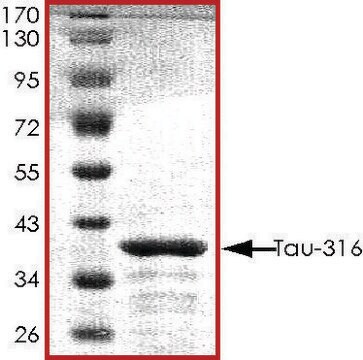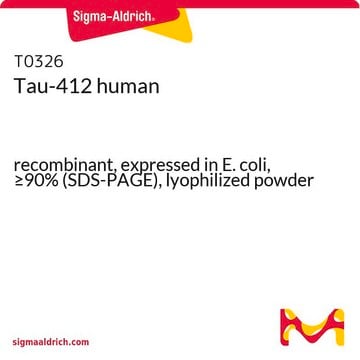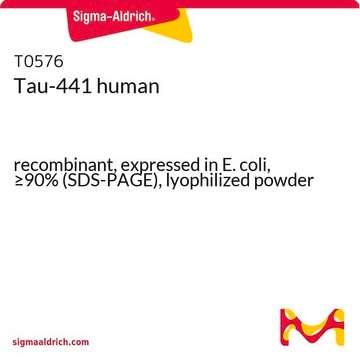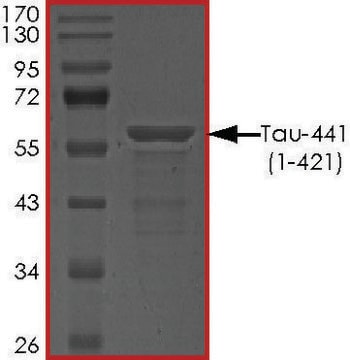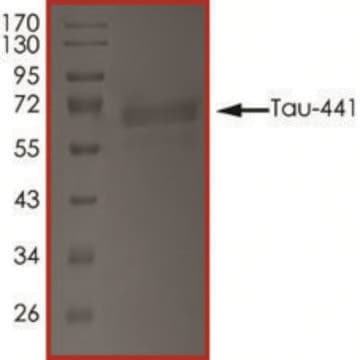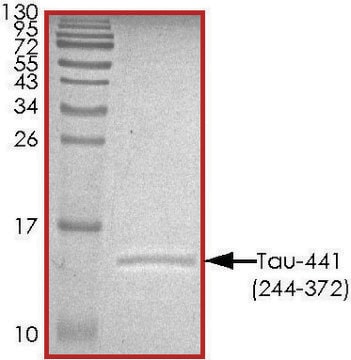Recommended Products
recombinant
expressed in E. coli
Assay
70-95% (SDS-PAGE)
form
frozen liquid
mol wt
~39 kDa
concentration
0.2 μg/μL
accession no.
P10636-8
shipped in
dry ice
storage temp.
−70°C
Gene Information
human ... MAPT(4137)
Application
Useful for kinase assay and Western blot.
Biochem/physiol Actions
Recombinant human tag-free Tau-441 (P301S) was expressed in E. coli cells. Tau-441 or Tau-F is a member of the Tau family of proteins which function to stabilize the microtubules by binding to them. Tau proteins are subject to phosphorylation and this phenomenon regulates the association of the Tau protein with the microtubules (1). Deposits of Alzheimer′s disease AD-associated proteins, such as hyperphosphorylated Tau, as well as other shared misfolded proteins, such as, β-amyloid precursor protein (βAPP), ubiquitin, and various chaperones and protein kinases are thought to play a pathologic role in the cognitive decline and muscular failure. Malfunctioning of Tau proteins is associated with microtubules disintegration and collapsing of the neuronal transport system (2).
Sequence
P301S
Reconstitution
Formulated in 50mM Tris-HCl, pH 7.5, 150 mM NaCl, 0.25 mM DTT, 0.1 mM PMSF, with 25% glycerol.
Storage and Stability
Store in aliquots at -70°C. Avoid freeze/thaw cycles.
Storage Class Code
10 - Combustible liquids
WGK
WGK 1
Flash Point(F)
Not applicable
Flash Point(C)
Not applicable
Certificates of Analysis (COA)
Search for Certificates of Analysis (COA) by entering the products Lot/Batch Number. Lot and Batch Numbers can be found on a product’s label following the words ‘Lot’ or ‘Batch’.
Already Own This Product?
Find documentation for the products that you have recently purchased in the Document Library.
Our team of scientists has experience in all areas of research including Life Science, Material Science, Chemical Synthesis, Chromatography, Analytical and many others.
Contact Technical Service